What are Dentures?
Dentures are removable prosthetic devices used to replace missing teeth and surrounding tissue. They are custom-made to fit comfortably and securely in your mouth. Dentures can either be partial or complete, depending on the extent of tooth loss.
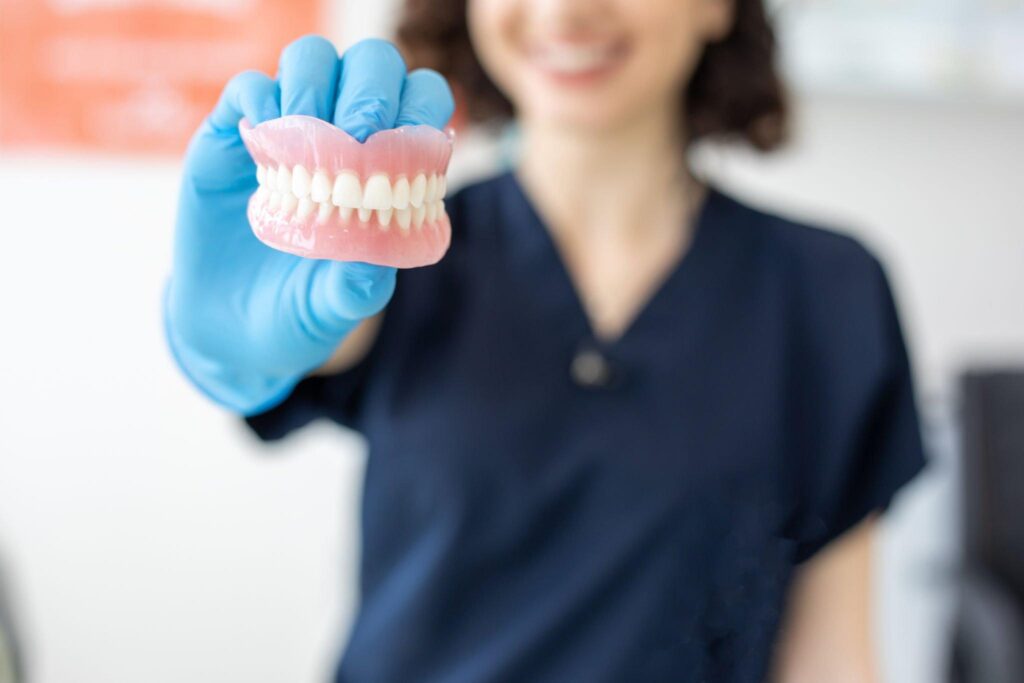
While traditional dentures are held in place by suction and/or denture adhesive, snap-in dentures offer a more secure fit through the use of dental implants. In this article, we’ll explore everything you need to know about snap-in dentures, including how they differ from traditional dentures, the different types of implants used, and the costs and benefits of this option.
Types of Dentures
Dentures are a common and effective solution for people who have lost their natural teeth due to aging, injury, or disease. There are different types of dentures available, each with its own unique benefits and drawbacks. In this article, we’ll explore the three main types of dentures: traditional dentures, implant-retained dentures, and implant-supported dentures.
Traditional dentures, also known as removable dentures, are the most commonly used type of denture. These dentures rest on top of the gums and are held in place with denture adhesive. Traditional dentures are typically made of acrylic resin and designed to fit precisely on the gum line. While they are a cost-effective solution for tooth loss, traditional dentures may be less comfortable than other types of dentures, and they can slip or shift while eating or speaking.
Implant-retained dentures are a type of denture that uses implants for added stability. Rather than resting on the gums, implant-retained dentures are connected to dental implants that are surgically placed into the jawbone. These implants act as anchors, holding the denture firmly in place. There are two types of implant-retained dentures: snap-in dentures and screw-in dentures.
Snap-in dentures are a type of implant-retained denture that uses attachments to snap onto the implants. There are two types of snap-in dentures: bar-retained and ball-retained. Bar-retained dentures use a thin metal bar that is attached to the implants, while ball-retained dentures use ball-and-socket attachments that snap onto the implants. Both types of snap-in dentures are removable, making them easy to clean and maintain.
Screw-in dentures, also known as implant-supported dentures or permanent dentures, are a type of denture that is secured in place using screws. These dentures are designed to be a permanent solution for people who have lost their natural teeth and want a more stable alternative to traditional dentures. Screw-in dentures are typically made of porcelain or acrylic and are custom designed to fit the patient’s mouth perfectly.
In summary, there are different types of dentures available to suit different needs and preferences. Traditional dentures are a cost-effective option, while implant-retained and implant-supported dentures offer added stability and a more natural feel. If you’re considering dentures, speak with your dentist to determine which type of denture is right for you.
Snap-In Dentures
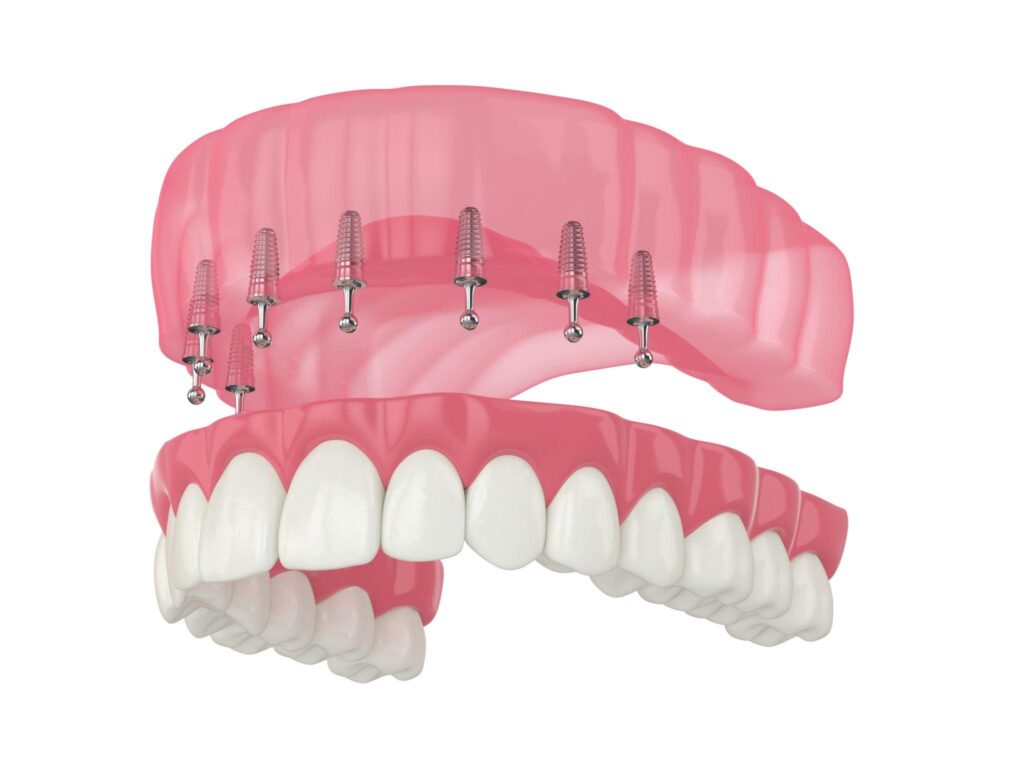
Snap-in dentures are a type of implant-retained denture that provides added stability compared to traditional dentures. These dentures use attachments to snap onto dental implants that have been surgically placed into the jawbone, which act as anchors to keep the dentures firmly in place.
Snap-in dentures are available in two types: bar-retained and ball-retained. Unlike screw-in dentures, snap-in dentures are removable, making them easy to clean and maintain.
In this article, we’ll delve deeper into the advantages and disadvantages of snap-in dentures and explore whether they are the preferred option for those with missing teeth.
Benefits of Snap-In Dentures
Snap-In Dentures, also known as Snap-On Dentures or Implant-Supported Dentures, are a popular option amongst those seeking a more permanent solution to their tooth loss or uncomfortable dentures. Here are some of the benefits of choosing Snap-In Dentures:
- Confidence and Stability – Snap-In Dentures provide better stability and functionality than traditional, removable dentures. They offer an improved grip and secure fit, allowing you to speak and eat with greater confidence and comfort. This eliminates many of the concerns and potential embarrassing moments that come with traditional dentures.
- Preservation of Bone and Gum Health – Because Snap-In Dentures are anchored into the jaw bone, they help to stimulate bone growth and prevent bone loss. This reduces the risk of further tooth loss and preserves the overall health of your gums and jaw bone.
- Enhanced Dental Hygiene – Snap-In Dentures are easier to maintain than traditional dentures. You can simply remove them to clean them thoroughly, lowering the risk of infection or irritation to your gums. By taking better care of your oral hygiene, you can maintain a healthier overall outlook.
- Better Esthetics – Snap-In Dentures are designed to look just like natural teeth. They are made of high-quality materials and can be customized to fit your unique dental profile. This gives you a more natural and youthful appearance and can improve your self-esteem and confidence.
- Ability to Eat a Variety of Foods – Snap-In Dentures are more stable than traditional dentures, allowing you to eat a wider range of foods. This improves your ability to consume the nutrients and minerals essential to your health and overall nutrition.
- Ideal and Affordable Solution – Snap-In Dentures are an excellent option for those who want a more permanent and secure solution to tooth loss or problematic dentures but might not want to opt for invasive surgical procedures. An experienced dentist can offer you an affordable yet effective option that will provide you with the support and stability you need.
In conclusion, Snap-In Dentures offer many benefits, including improved confidence and stability, preservation of bone and gum health, enhanced dental hygiene, better esthetics, and the ability to eat a wider range of foods.
Additionally, Overdentures are another option for those seeking even greater stability and reinforcement, further improving the overall experience and impact of Snap-In Dentures. For those looking to improve their dental condition, Snap-In Dentures are not only an effective solution but a wise investment in their overall health and well-being.
How to Care for Snap-In Dentures
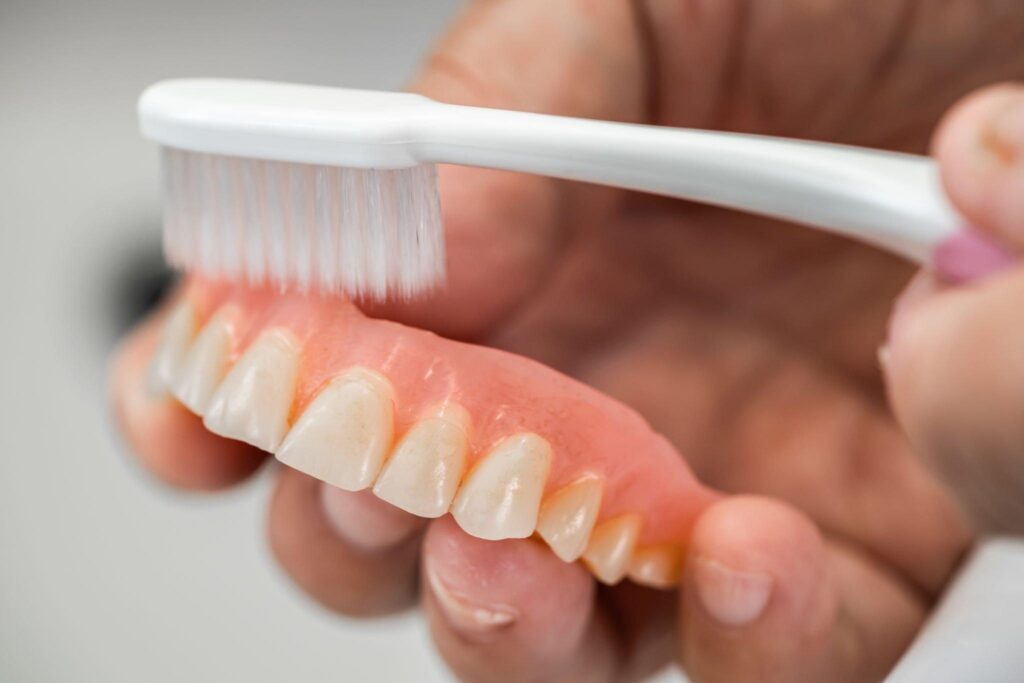
Snap-in dentures are an advanced dental solution that provides greater stability, functionality, and confidence to patients suffering from tooth loss. However, it is important to know how to care for your snap-in dentures to ensure their longevity and effectiveness. Here are some essential tips to keep in mind when caring for your snap-in dentures:
- Brush your gums, roof of the mouth, and tongue: Prior to wearing your snap-in dentures, it is important to use a soft-bristled brush to clean the gums, roof of the mouth, and tongue. This helps to remove any bacteria or debris and also promotes oral hygiene.
- Rinse your dentures: It is essential to rinse your snap-in dentures under running water to remove any loose food particles or debris before brushing. This helps to prevent any blockage or damage to the dentures.
- Use a non-abrasive cleaner: If you need to clean your snap-in dentures, use a non-abrasive cleaner along with a soft-bristled toothbrush to remove any particles from the surface. Avoid using abrasive cleaning materials, which could damage the dentures.
- Soak your dentures: When you are not wearing your snap-in dentures, store them in a container of water in a safe area. This helps to prevent the dentures from drying out and becoming brittle or damaged.
- Avoid harmful products: To prolong the life of your snap-in dentures, keep them away from abrasive cleaning materials, whitening toothpaste, and bleach-based products that can harm the device.
In conclusion, proper care ensures the longevity and effectiveness of snap-in dentures. Remember to brush, rinse, and use non-abrasive cleaners when cleaning your dentures. Also, store them in water and avoid harmful products. With proper care, your snap-in dentures will function efficiently for a longer time.
Traditional Dentures
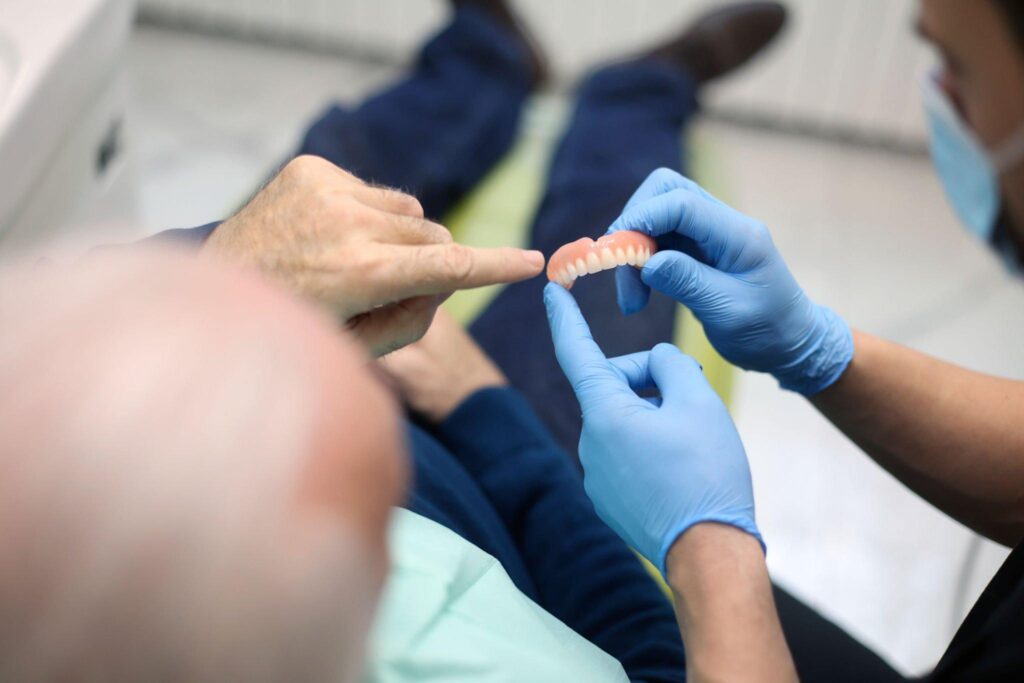
Traditional dentures have been a popular option for replacement teeth for several decades. These dentures are removable and sit on the gums, recreating the appearance of natural teeth. Although they are a less expensive option than dental implants, traditional dentures have some disadvantages, such as the need for adhesives or glue to keep them in place and the potential for bone loss due to the lack of stimulation from natural teeth. However, with proper care and maintenance, traditional dentures can provide a satisfactory solution for those missing teeth.
Benefits of Traditional Dentures
Traditional dentures have been a reliable tooth replacement option for people missing some or all of their teeth. Unlike implant-supported dentures, traditional dentures are removable and rest on the gums, providing short-term tooth replacement.
One of the significant advantages of traditional dentures is their affordability. They are a cost-effective option for those who may not have the budget for implant-supported dentures, which require surgical procedures and lengthy healing processes. Traditional dentures can be more accessible and provide temporary relief for those who need it.
However, traditional dentures also have potential downsides. They may not provide the same chewing power as implant-supported dentures, leading to a limited range of food choices. Speaking can also become an issue for some denture wearers, and discomfort due to denture movement can occur.
Therefore, it is vital to understand proper denture care and maintenance to ensure a comfortable fit. Dentures should be cleaned daily and should be kept moist when not in use. Regular dental check-ups are essential to address any issues or discomfort that may arise from wearing dentures.
In summary, traditional dentures can provide a cost-effective and quick short-term solution for tooth replacement, but they may come with limitations such as limited chewing power and speech issues. Proper denture care and maintenance are crucial for ensuring a comfortable fit and avoiding discomfort.
How to Care for Traditional Dentures
Traditional dentures are a cost-effective solution for people with tooth loss. However, like any dental device, they require proper care to ensure their longevity, functionality, and comfort. Here is a step-by-step guide to maintaining your traditional dentures:
- Daily cleaning routine: Cleaning your dentures every day is essential to keep them free from food particles, plaque, and stains. Use a soft-bristled toothbrush and a non-abrasive cleaner to brush your dentures gently. Make sure to clean all the surfaces of the dentures, including the areas that come in contact with your gums.
- Rinsing: After cleaning, rinse your dentures with water to remove all the cleaner. Make sure to use only lukewarm water as hot water can warp the dentures’ shape.
- Soaking: Store your traditional dentures overnight in a denture cleaning solution or water to prevent them from drying out. This step also helps to keep the dentures clean and free from odor-causing bacteria.
- Check for fit and comfort: Over time, your jawbone and gums can change, causing your dentures to become loose or uncomfortable. If you experience any issues, visit your dentist for a denture adjustment or reline.
- Regular check-ups: Lastly, it is vital to schedule regular dental check-ups to ensure your dentures fit properly and address any issues that may arise.
By following these simple care instructions, you can keep your traditional dentures in excellent condition for years to come. Remember that appropriate denture care is crucial for maintaining optimal oral health and overall wellness.
Dental Implants and Implant-Supported Dentures
Dental implants and implant-supported dentures are two effective solutions for tooth loss. Both options offer a permanent solution that restores the look and function of natural teeth. Dental implants require a surgical procedure and involve the placement of a small titanium post into the jawbone, while implant-supported dentures utilize the stability of dental implants to secure the denture in place. In this article, we will break down the difference between the two and help you choose the best option for your oral health needs.
Benefits of Dental Implants and Implant-Supported Dentures
Dental implants and implant-supported dentures have become increasingly popular as a long-lasting and stable solution to replace missing teeth. Unlike traditional removable dentures, dental implants are fixed into the jawbone and provide firm support to facial structures to maintain a more youthful appearance.
One of the main benefits of dental implants is that they offer a more stable and long-lasting solution compared to traditional dentures. Dental implants are surgically placed into the jawbone and fuse with the bone over time, creating a strong foundation for replacement teeth. This process helps prevent jawbone atrophy, which can occur when teeth are missing and not replaced, leading to a sunken appearance in the face over time.
Implant-supported dentures are a type of dental implant system that use a bar or ball and socket mechanism to secure the dentures in place. This offers a more stable and natural feel, allowing you to eat and speak with confidence. Unlike traditional removable dentures, implant-supported dentures do not slip or slide around, eliminating the need for denture glue or adhesive. The close fit of implant-supported dentures also helps prevent sore spots and irritation in the mouth.
All-on-4 implants and mini implants are two types of implants commonly used in implant-supported denture procedures. All-on-4 implants use four strategically placed implants to support an entire arch of replacement teeth. Mini implants are smaller in size and can be placed in areas where traditional implants cannot, such as the front of the mouth.
Using a permanent solution such as dental implants or fixed bridges offers many advantages beyond stability and longevity. Dental implants and implant-supported dentures can restore clear speech and improve the ability to eat comfortably. With dental implants, you can enjoy a more natural feel and function, similar to real teeth. A permanent solution also eliminates the need for regular replacement and maintenance of removable dentures.
In conclusion, dental implants and implant-supported dentures provide many benefits, including stability, longevity, and improved facial structure support to maintain a youthful appearance. Consider a permanent solution for your missing teeth needs to enjoy a more natural and comfortable lifestyle.
Types of Implants Used in Implant-Supported Denture Procedures
Implant-supported dentures are an increasingly popular solution for those requiring replacement teeth. This treatment involves affixing the dentures onto a dental implant system, eliminating the common issues associated with traditional removable dentures such as slipping, sliding, and irritation. However, when seeking an implant-supported denture treatment, it’s important to understand the different types of implants used and their compatibility with your jawbone.
All-on-4 implants and mini implants are the two most commonly used implants in implant-supported denture procedures. All-on-4 implants utilize four strategically placed implants to support an entire arch of replacement teeth. This implant type is ideal for those with bone loss in their jaw who may not have enough bone to support multiple traditional dental implants. All-on-4 implants can eliminate the need for bone grafts and allow for a shorter recovery period.
Mini implants, on the other hand, are significantly smaller in size and allow for implant placement in areas where traditional implants cannot, such as the front of the mouth. This makes them suitable for patients who require a quick solution to tooth loss or who have insufficient bone density.
When considering the different types of implants, it’s essential to weigh their pros and cons and how they affect implant-supported denture treatment outcomes. All-on-4 implants offer significant advantages such as stability, strength, and a natural feel. However, they are not suitable for everyone, particularly those with significant bone loss in their jaw.
Mini implants, on the other hand, are more affordable and can provide temporary tooth replacement for patients who are not eligible for traditional dental implants. However, they may not be able to support the weight of a full denture and are only suitable as a short-term solution.
It’s important to understand that every patient’s jawbone is unique, and a dental professional can determine the right implant type based on the patient’s individual needs and bone density. Consulting with a qualified dental professional is crucial to ensure that the implant type chosen is compatible with the patient’s jawbone and that the implant-supported denture outcome is successful.
In conclusion, implant-supported dentures offer a fantastic solution to tooth loss and the associated problems of traditional removable dentures. The different types of implants used in implant-supported denture procedures all have unique pros and cons and affect treatment outcomes, making it essential to consult with an experienced dental professional before opting for a particular implant type.
Surgery Involved in a Dental Implant Procedure
A dental implant procedure is a surgical procedure that involves the replacement of missing teeth with artificial teeth that are anchored in the jawbone. This procedure is typically performed under local anesthesia, and depending on the number of implants required, may take several hours.
The first step in the dental implant procedure involves creating an incision in the gum tissue to expose the jawbone. A small hole is then drilled into the bone, and the titanium implant is carefully inserted and secured in place. Once the implant is in place, the gum tissue is stitched back into place to facilitate the healing process.
The number of implants required per jaw depends on several factors, including the size and shape of the jawbone, the patient’s oral health, and the number of teeth that need to be replaced. In general, two to four implants are placed per jaw to support a full arch of replacement teeth.
There are various types of implants used in implant-supported denture procedures, including mini implants and screw-in dentures. Mini implants are smaller in size than traditional implants and can often be used to support a partial denture or bridge. Screw-in dentures, on the other hand, are full arch replacement teeth that are secured in place with screws or clips.
In cases where the patient’s jawbone is too thin or soft to support an implant, a bone graft may be required. A bone graft is a surgical procedure that involves taking a small amount of bone tissue from another part of the body, such as the hip, and transplanting it to the jawbone. The healing process following implant surgery can take several months, during which time the implant integrates with the jawbone and creates a strong, stable base for the replacement tooth or teeth.
Overall, the dental implant procedure involves several surgical procedures that require careful planning and execution to ensure optimal results. Meticulous attention must be paid to the patient’s oral health, bone density, and other relevant factors to ensure that the implant-supported denture outcome is successful.
Natural Teeth vs. Replacing with a Permanent Solution
When it comes to oral health, having natural teeth is the ultimate goal. However, tooth loss due to injury, decay, or other factors can lead to the need for replacement teeth. While conventional dentures have been the go-to solution for many years, permanent solutions such as implant-supported dentures offer more stability and a more natural look and feel. In this article, we’ll explore the pros and cons of natural teeth versus replacing them with a permanent solution.
Advantages of Keeping Your Natural Teeth

Nothing can compare to the strength, durability, and functionality of natural teeth. While permanent solutions like dental implants and fixed bridges have their benefits, they can never fully match the advantages of keeping your natural teeth.
One of the most significant benefits of natural teeth is the role they play in maintaining jawbone density. When teeth are removed, the jawbone is no longer stimulated by chewing, and the body begins to resorb the bone. Dental implants can prevent this bone loss, but they will never fully replace the natural chewing forces that keep the jawbone healthy. In contrast, natural teeth provide the necessary chewing action to maintain the proper bone density and avoid the risk of bone loss.
The strength and chewing power of natural teeth are also superior to any type of replacement. This means that you can eat a variety of foods, including hard and sticky ones that may not be possible with dental devices. Speaking clearly is also made easier with natural teeth, as they allow for more natural movement of your lips, tongue, and cheeks.
Finally, natural teeth contribute to overall oral health. They keep the underlying bone healthy, as well as maintaining gum health and reducing the risk of gum disease. Good oral health has also been linked to better overall health outcomes, with research suggesting that poor dental hygiene can increase the risk of heart disease, diabetes, and other systemic illnesses.
While natural teeth do require more maintenance, including brushing, flossing, and regular dental check-ups, they remain the best option for maintaining optimal oral health. From chewing power to jawbone density, natural teeth offer a range of benefits that cannot be matched by any other solution. So take care of your natural teeth, and they will take care of you!
Advantages of Using a Permanent Solution Such as Dental Implants or Fixed Bridges
When it comes to replacing missing teeth, there are various options available, ranging from traditional dentures to permanent solutions like dental implants or fixed bridges. Permanent solutions are fixed in the mouth and provide more stability and durability than traditional dentures, which are removable and typically held in place using adhesives.
While natural teeth are always the best option, sometimes they cannot be preserved, for example, due to severe decay or trauma. In such cases, using a permanent solution can help restore chewing function, speech, and facial appearance.
One of the most significant advantages of dental implants is that they mimic the natural tooth root, providing a firm foundation for replacement teeth. This not only prevents bone loss but also helps maintain healthy bone density and provides firm support for facial features. Furthermore, implant-supported teeth can be brushed and flossed like natural teeth, making dental hygiene much easier.
Another advantage of dental implants is that they offer greater comfort and convenience than traditional dentures. Implant-supported teeth do not slip or move, allowing you to enjoy your favorite foods with confidence. You also don’t need to take them out at night, reducing the risk of sore spots, infection, or other complications that can arise with traditional dentures.
Fixed bridges are another permanent solution that can be used to replace missing teeth. A bridge consists of one or more artificial teeth anchored to adjacent natural teeth or dental implants. Fixed bridges provide more stability than traditional dentures, allowing you to chew and speak more confidently. They also look and feel more like natural teeth, improving your overall facial appearance and self-confidence.
In contrast, traditional dentures sit on top of the gums, rely on suction or adhesive for support, and can slip or move, causing discomfort and embarrassment. They also require special care and maintenance, such as soaking in cleaning solutions or getting them adjusted periodically.
In conclusion, using a permanent solution such as dental implants or fixed bridges can offer several advantages over traditional dentures, including improved chewing function, speech, and facial appearance. While natural teeth are always preferable, sometimes using a permanent solution may be the best option to restore your smile and overall oral health.

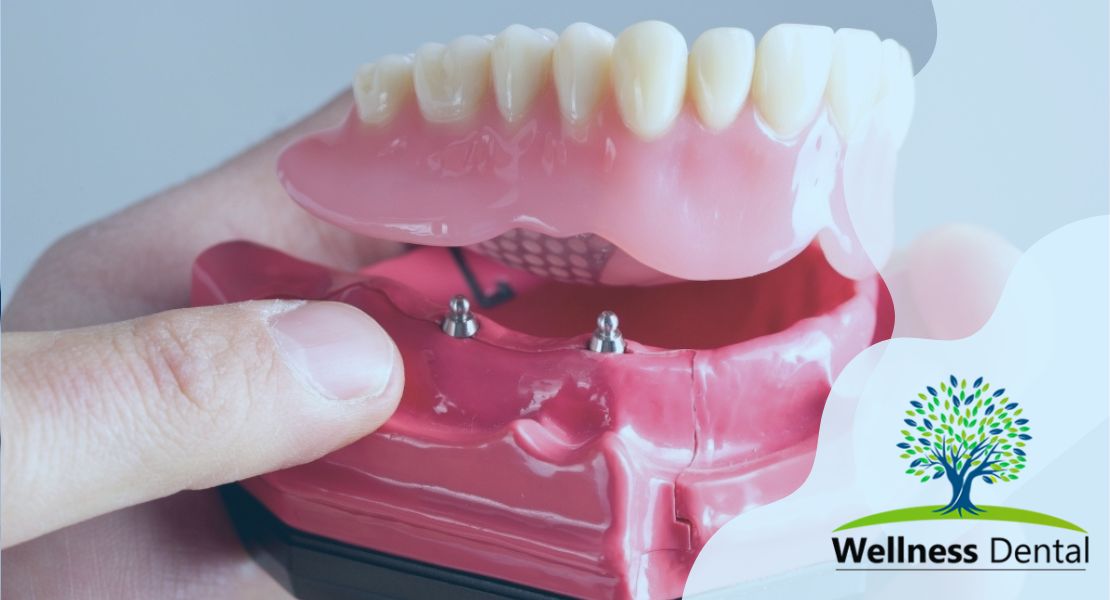


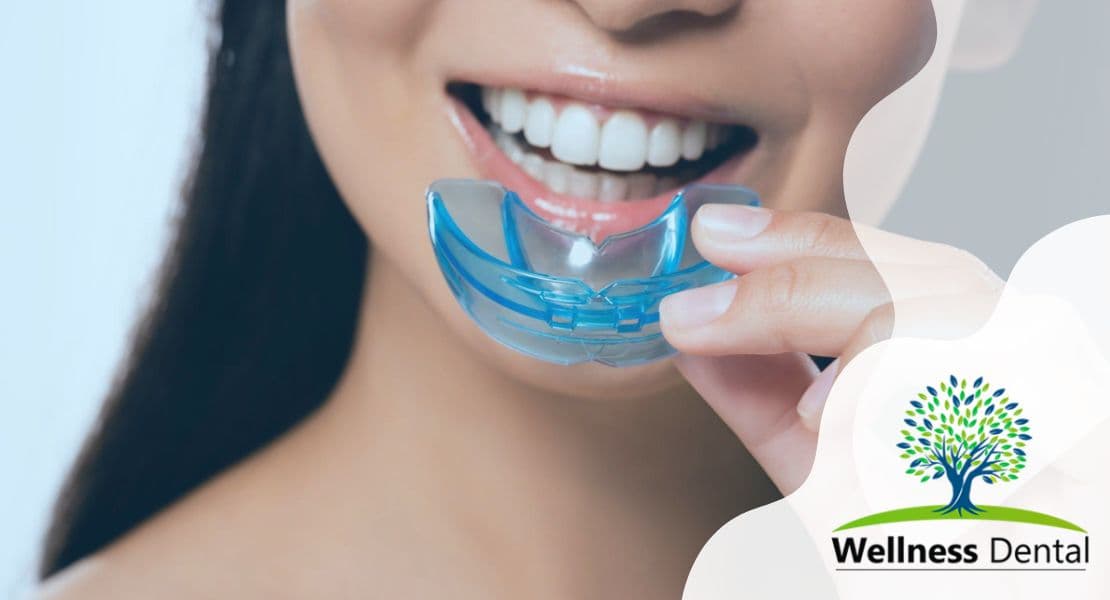

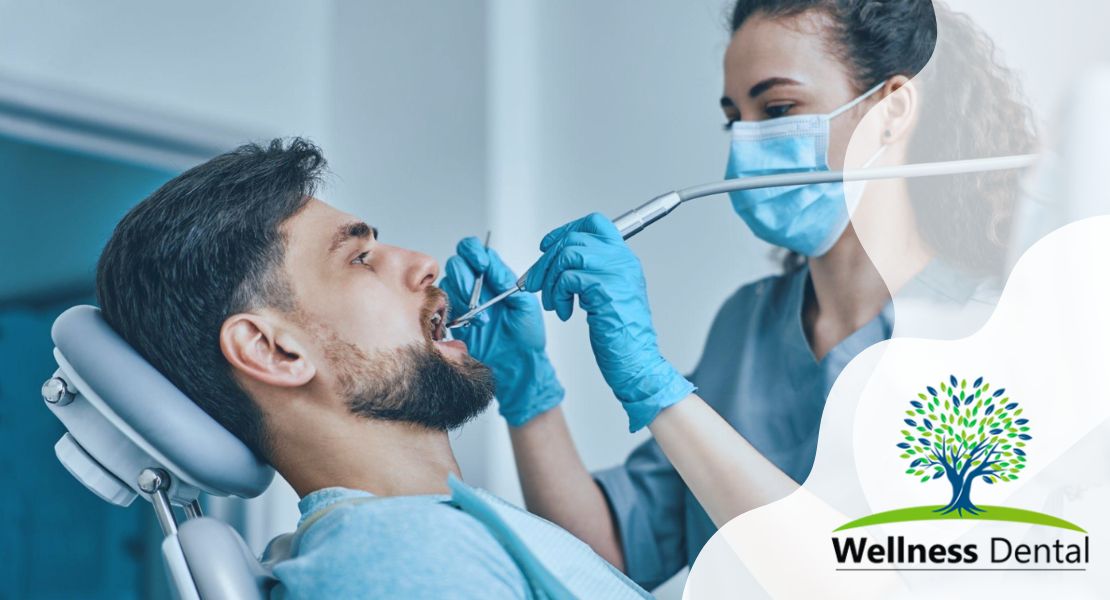
Thank you for this post.